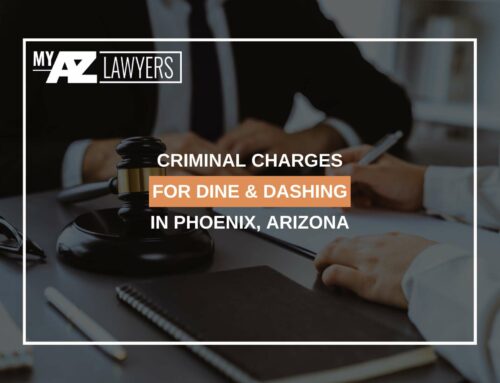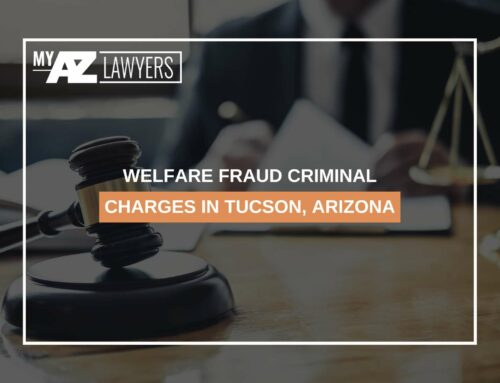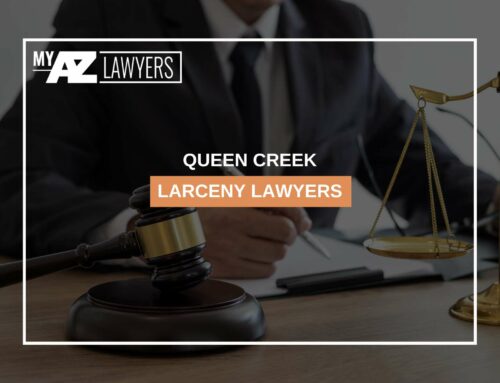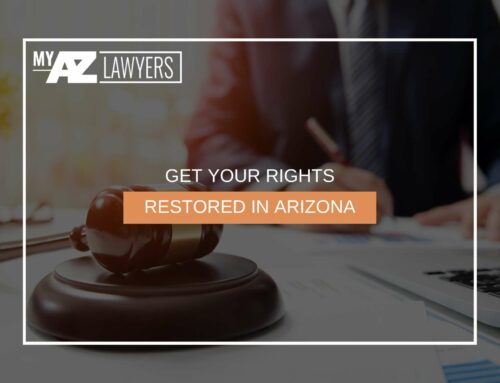Table Of Contents
Understanding Disclosure & Discovery In An Arizona Criminal Traffic Case
Receiving a traffic citation is inconvenient, but ultimately isn’t a huge deal for most Arizona drivers. Even then, paying a fine, completing defensive driving school, and potentially having auto insurance rates raised can be quite costly. When a driver faces criminal prosecution as a result of their traffic violation, the consequences become even more severe. If convicted, the driver can expect all of their financial penalties to be higher, and there may even be a possibility of jail time. To fight back against criminal traffic charges in Arizona, the driver will need to mount a strong defense against prosecution.
Disclosure and discovery is just one phase of the criminal defense process. It can be confusing and overwhelming, but it gives the driver an opportunity to uncover strong evidence in their favor. Some evidence is required by law to be disclosed throughout a case, but others require specific requests by each party. Disclosure and discovery can be instrumental in preserving a criminal traffic defendant’s innocence and driving privileges. Read on to learn more about these procedures in a criminal traffic case in Arizona. If you need further assistance defending yourself against criminal traffic charges in Arizona, consider hiring a reputable criminal defense firm in Arizona to take on your case. For your free consultation with an experienced attorney from My AZ Lawyers, call 480-470-1504.
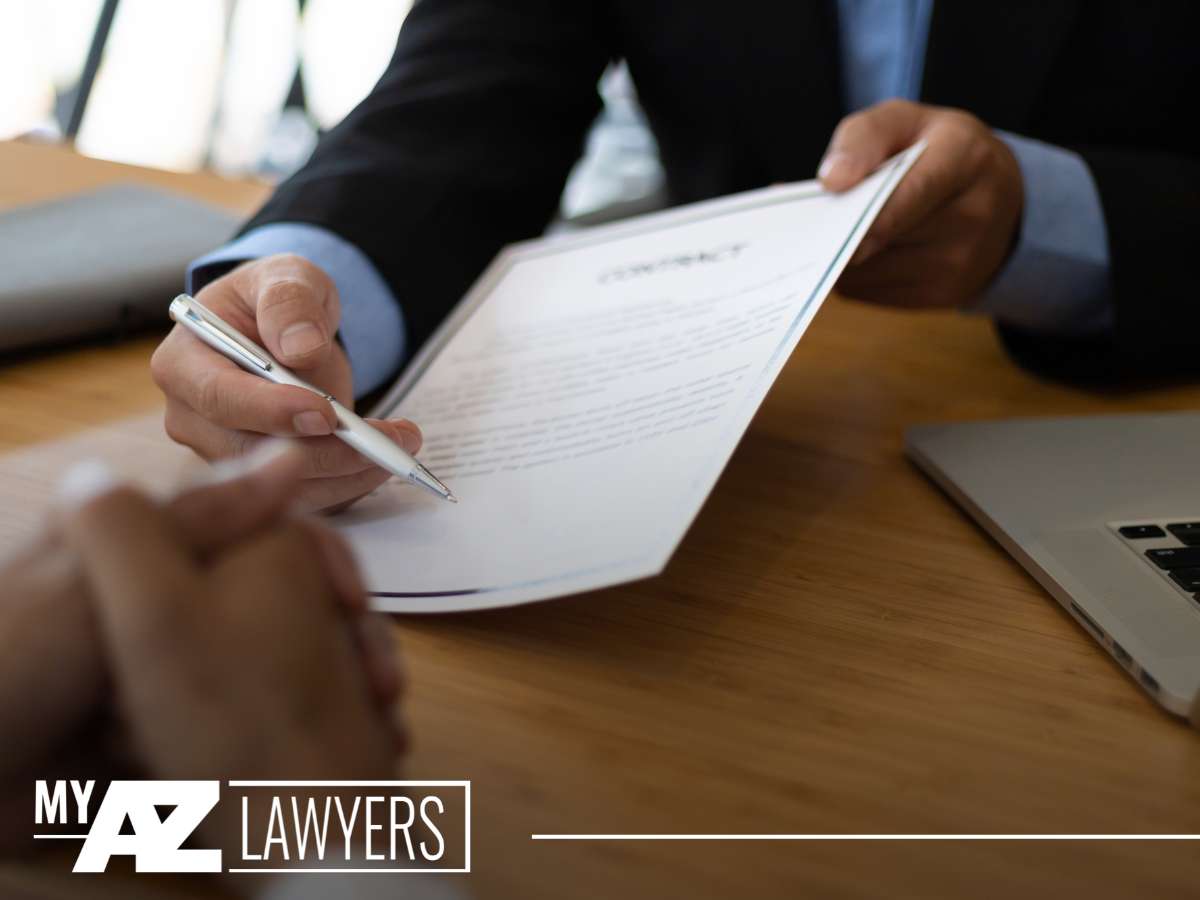
Disclosures In Arizona Criminal Traffic Cases
In a criminal prosecution, both sides- the prosecution and the defendant- are required to submit to disclosures. It is the process of providing each other with important evidence that will be used in the case. This ensures fairness by allowing both parties to prepare for the other side’s legal arguments. Arizona Rules of Criminal Procedures, Rule 15 contains more information about the specific rules surrounding disclosures in Arizona. Rule 15.1 governs disclosures for the state, while Rule 15.2 governs disclosures for the defendant.
It is crucial for a criminal defendant to stay alert throughout the disclosure process to make sure that the prosecution complies with Rule 15.1. There are 11 factors that create an obligation for the prosecution to submit evidence during the discovery phase, which are:
- The name and address of any witnesses the State intends to call, as well as any written or recorded statements by them;
- Statements by the defendant or any co-defendants;
- Original and supplemental reports from law enforcement connected with the charged offense;
- Information about any expert witnesses the State intends to call;
- A list of all items of evidence that purportedly belong to the defendant that the State intends to use at trial;
- A list of the defendant’s prior convictions that the State intends to use at trial;
- A list of the defendant’s other acts that the State intends to use at trial;
- Any information that would mitigate or negate the defendant’s guilt or reduce the defendant’s punishment;
- Whether there has been electronic surveillance of any of the defendant’s conversations, business, or residence;
- Whether there has been a search warrant executed in connection with the case; and
- Whether the case involved an informant and that informant’s identity.
As you can see, many of these are highly unlikely to become relevant in a criminal traffic matter. But when they do become relevant, the prosecution must disclose the evidence by 30 days after the arraignment or at the first pretrial conference. Some of the most commonly used disclosures in criminal traffic cases are witness statements, police reports, defendant statements, expert reports, and exculpatory evidence. Prior felony convictions being brought in misdemeanor matters only have to be disclosed 10 days before trial. If you are inexperienced in legal matters, either of these can be a tight deadline to perform the appropriate legal research and put it into action. In addition to any items on the list above, the defendant can also request 911 calls related to the case and any completed written reports, statements, and examination notes.
A defendant in any type of criminal matter should understand the requirements of Rule 15.2, as well as its limitations. There are 8 potential requirements of a defendant undergoing disclosures in an Arizona criminal defense case:
- Appearing in a line-up;
- Speaking for identification by one or more witnesses;
- Fingerprinting, palm-printing, foot-printing, or voice printing;
- Posing for photographs not involving re-enactment of an event;
- Trying on clothing;
- Permitting the taking of samples of hair, blood, saliva, urine, or other specified materials that don’t require significant intrusion of the defendant’s body;
- Providing handwriting specimens; and
- Submitting to a reasonable physical or medical inspection of the defendant’s body, not including a psychiatric or psychological examination.
Discovery In Arizona Criminal Traffic Cases
Mistakes happen, and sometimes evidence can be missed in mandatory disclosures. Filling the gaps during discovery can be key to a defendant achieving a successful outcome at trial. When one party makes a valid discovery request, the other party is obligated to supply that information in a timely manner. There are a few processes that are seen the most during discovery in criminal traffic cases in Arizona. When utilized correctly, they can help a criminal defendant avoid serious penalties and expensive fines as a result of a traffic offense. They are:
- Requests For evidence: If the defendant believes there is evidence missing from the prosecution’s initial disclosures, they should submit requests for evidence, or RFEs. Surveillance footage, body cam footage, and dash cam footage are all common examples of evidence that might be obtained through a RFE in an Arizona criminal traffic case.
- Requests For admission: A request for admission, or RFA, is the other most common type of request in the Arizona criminal discovery process.
- Physical Evidence inspection: Some evidence can contain information that isn’t obvious upon first review, so it should be inspected by the defendant to ensure all possible exculpatory information has been obtained. If a criminal traffic case arose out of a traffic accident, the defendant can request to inspect the damaged vehicle(s) and see firsthand if it strengthens their defense arguments.
- Witness Subpoenas: A witness can be compelled to give testimony before the court through a subpoena. These can be used to obtain testimonial evidence from any witnesses who aren’t being forthcoming.
- Depositions: A deposition is a series of statements obtained through an out-of-court interview before trial. Deposing a witness before trial can give counsel clarity and context on the statements they give.
Frequently Asked Questions
When does the state have to make its disclosures in a misdemeanor traffic case?
For misdemeanor traffic violations in Arizona, the State is not required to make its first disclosures until the first pretrial conference. The court must conduct at least one pretrial conference for misdemeanor traffic cases. Besides engaging in disclosure, the pretrial conference is also meant to allow the chance for negotiation and setting a trial date.
What happens if I forget to include information supporting my position in my disclosures?
Omitting information from your disclosures can prevent you from introducing it during trial, especially when it can be shown that you had knowledge of the evidence before submitting your disclosures. Of course, there are provisions available for evidence that only becomes available after the disclosure deadlines. On the flip side, you can use similar mistakes by the prosecution in your favor. This is why it’s important to have an attorney who understands the disclosure process on your side during a criminal traffic matter in Arizona.
Can’t I introduce evidence at the last minute like I see in movies and TV shows?
Movies and TV shows are written by screenwriters, not practicing attorneys. While some defendants might be able to introduce last-minute evidence with a showing of good cause, this is the exception and not the norm. Just like every other detail in entertainment, some facts are exaggerated or fictionalized to develop the story. You can’t expect a real-life Arizona criminal traffic case to play out like what you see on TV.
Which witnesses might be called in an Arizona traffic case?
Most often, the citing officer is the only witness that the prosecution will call in an Arizona traffic case.
Why should I request to see the officer’s notes about my citation or arrest?
The information that is in the notes is important, as well as the information not included in the notes. It is more difficult for police officers to remember information that isn’t included in the notes, so they could struggle to provide it later on the witness stand- which will help your case. Ideally, the officer’s notes will not include any admissions of fault from you at the scene of the citation or arrest.
What if the other side doesn’t comply with my discovery requests?
If you have not received a response to your discovery requests after 3 weeks, you will need to file a motion to compel discovery. If the judge agrees with your position, the information will need to be provided or your case could be dismissed. You have a right to a speedy trial, and the State dragging out the discovery process conflicts with this right. You should include a copy of any discovery requests if you petition the court to dismiss your case due to the other side’s noncompliance with discovery.
What are some examples of unsuccessful defenses to traffic violations in Arizona?
There are plenty of justifications people give for their driving that aren’t valid defenses in a court of law, like:
- Dealing with a personal emergency
- Feeling tired, stressed, overwhelmed, etc.
- Not knowing the speed limit and other applicable traffic laws
- Other drivers were behaving in similar ways but weren’t pulled over
- Nobody was hurt and no property was damaged by the incident
- Speed radars are inaccurate forms of testing
- The officer is lying, targeting the defendant, etc.
Experienced Arizona Criminal Defenders For Every Step Of The Process
Disclosure and discovery are important in a traffic criminal defense matter, but a quality attorney will be skilled in other areas to achieve the best results. Our defense team can strategize all aspects of your case- not just discovery and disclosure, but negotiations, hearings, jury selection, trial, and other crucial phases of the criminal prosecution process. Discovery and disclosure is also an opportunity for the prosecution to uncover evidence that will damage your defense strategy. Entrusting these issues with a dedicated defender, rather than leaving up to a court-appointed public defender, could make all the difference in your case. Do you have an upcoming Arizona criminal traffic case that needs review by a skilled defense attorney? Have your case evaluated by an Arizona criminal defense experienced lawyer with our firm with no risk or obligation. Get started today with your free consultation by calling 480-470-1504 and contact us today!
Arizona Offices:
Mesa Location:
1731 West Baseline Rd., Suite #100
Mesa, AZ 85202
Office: (480) 448-9800
Email: info@myazlawyers.com
Website: https://myazlawyers.com/
Phoenix Location:
343 West Roosevelt, Suite #100
Phoenix, AZ 85003
Office: (602) 609-7000
Glendale Location:
20325 N 51st Avenue Suite #134, Building 5
Glendale, AZ 85308
Office: (602) 509-0955
Tucson Location:
2 East Congress St., Suite #900-6A
Tucson, AZ 85701
Office: (520) 441-1450
Avondale Location:
12725 W. Indian School Rd., Ste E, #101
Avondale, AZ 85392
Office: (623) 469-6603


